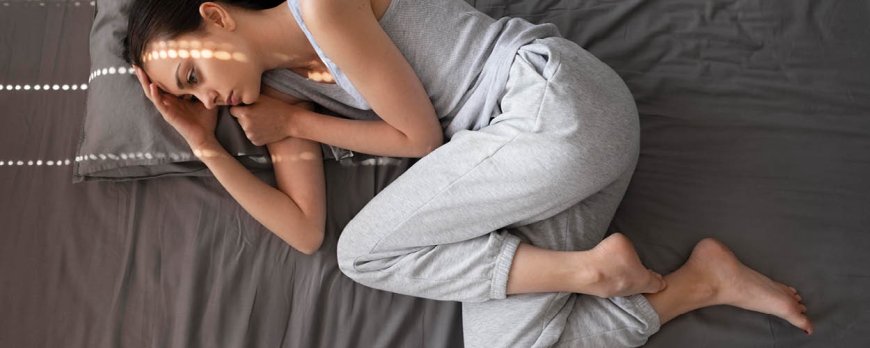How long does anxiety last?
Uncover the answer to 'How long does anxiety last?' with our detailed findings. Understand the duration and ways to manage this common mental condition.

How long does anxiety last?
Understanding the duration of anxiety is crucial for individuals seeking to manage this common mental health concern. Anxiety can last anywhere from a few months to many years, and for some people, it may be a lifelong condition to manage. The duration of an anxiety disorder is highly individual and can be influenced by factors such as age, employment status, living situation, physical health, and promptness of diagnosis and treatment. Generalized anxiety disorder, for example, is typically diagnosed when severe anxiety symptoms persist for at least six months. It is important to seek professional help for anxiety as early as possible, as without intervention, anxiety disorders can worsen over time and impact daily life. Treatment options for anxiety disorders include therapy, medication, lifestyle changes, and relaxation techniques. While panic attacks, which are intense episodes of fear and panic, typically last between 5 and 30 minutes, sustained anxiety can be experienced for hours, days, or even weeks.
Key Takeaways:
- Anxiety can last for varying durations, from a few months to many years.
- Factors such as age, employment status, living situation, physical health, and promptness of diagnosis and treatment can influence the duration of anxiety.
- Generalized anxiety disorder is typically diagnosed when severe anxiety symptoms persist for at least six months.
- Seeking professional help for anxiety is important to prevent the condition from worsening over time and impacting daily life.
- Treatment options for anxiety disorders include therapy, medication, lifestyle changes, and relaxation techniques.

Factors influencing anxiety duration
The duration of anxiety can vary significantly from person to person and is influenced by several factors. These factors can impact the recovery time, the duration of anxiety symptoms, and the length of anxiety episodes. It is important to understand these factors in order to better manage anxiety and seek appropriate treatment.
Age and Employment Status:
- Younger individuals may have a higher chance of recovery and shorter duration of anxiety symptoms, while older individuals may experience longer episodes.
- Employment status can also play a role, as those who are unemployed or facing financial stress may have prolonged anxiety.
Living Situation and Physical Health:
- A stable and supportive living environment can contribute to a shorter duration of anxiety symptoms.
- Physical health conditions, such as chronic pain or other illnesses, can exacerbate anxiety and prolong its duration.
Promptness of Diagnosis and Treatment:
- Early diagnosis and intervention can lead to shorter recovery times and better management of anxiety symptoms.
- Delayed or inadequate treatment can result in prolonged anxiety duration and increased severity of symptoms.
It is important to note that these factors are not definitive, and individual experiences may vary. Seeking professional help and exploring treatment options can greatly aid in managing anxiety duration and improving overall well-being.
Generalized anxiety disorder (GAD)
Generalized anxiety disorder is diagnosed when severe anxiety symptoms persist for at least six months. It is a common anxiety disorder characterized by persistent and excessive worry. The duration of symptoms required for a diagnosis can vary from person to person, but the six-month timeframe is typically used as a guideline.
People with generalized anxiety disorder may experience a range of symptoms, including restlessness, irritability, difficulty concentrating, muscle tension, and sleep disturbances. These symptoms can significantly impact daily life and overall well-being.
Impact on daily life
The persistent nature of generalized anxiety disorder can have a profound impact on various aspects of daily life. Relationships may be strained, work productivity may suffer, and overall quality of life may be compromised. It's important for individuals with GAD to seek professional help to manage their symptoms and prevent them from worsening over time.
- Strained relationships
- Reduced work productivity
- Compromised quality of life
Treatment options for generalized anxiety disorder
Effective treatment options are available for managing generalized anxiety disorder. Therapy, such as cognitive-behavioral therapy (CBT), can help individuals learn coping mechanisms and develop strategies to reduce anxiety symptoms. Medication may also be prescribed in some cases to alleviate symptoms. Implementing lifestyle changes, such as exercise, stress management techniques, and self-care practices, can also contribute to managing the duration of anxiety symptoms.
- Therapy (cognitive-behavioral therapy)
- Medication
- Lifestyle changes and self-care
By seeking professional help, individuals with generalized anxiety disorder can receive the support and guidance they need to effectively manage their symptoms and improve their overall well-being.

Impact on daily life
Untreated anxiety can significantly affect a person's daily life, including their ability to function at work, maintain relationships, and enjoy daily activities. Lengthy episodes of anxiety can lead to decreased productivity, difficulty concentrating, and impaired decision-making, making it challenging to fulfill job responsibilities effectively. Anxiety's impact on work can also manifest as increased absenteeism and presenteeism, where individuals physically show up but are unable to perform at their best.
Anxiety can strain relationships, as the constant worry and fear can make it challenging to connect with others on an emotional level. Individuals with anxiety may become withdrawn, isolated, or excessively dependent on their loved ones for reassurance and support. This can place a burden on relationships and lead to feelings of frustration, resentment, and misunderstanding.
In addition to work and relationships, anxiety can also interfere with a person's ability to engage in enjoyable activities and self-care practices. Individuals with anxiety may experience a reduced interest in hobbies, social outings, and self-care routines, leading to a diminished sense of pleasure and overall well-being. The constant presence of anxiety symptoms can make it difficult to relax, experience joy, and find respite from the stressors of everyday life.
Strategies for managing anxiety's impact on daily life:
- Seek professional help: Consulting a mental health professional can provide valuable support, guidance, and treatment options to manage anxiety. Therapy sessions can help individuals develop coping mechanisms, challenge negative thought patterns, and learn relaxation techniques.
- Practice self-care: Engaging in self-care activities, such as exercise, meditation, and pursuing hobbies, can help reduce anxiety symptoms and improve overall well-being. Prioritizing self-care can provide a sense of control and promote relaxation.
- Establish a support network: Surrounding oneself with a supportive network of friends, family, or support groups can provide emotional support, understanding, and encouragement during challenging times. Sharing experiences with others who have similar struggles can offer validation and help normalize the anxiety experience.
- Implement stress management techniques: Learning and practicing stress management techniques, such as deep breathing exercises, progressive muscle relaxation, and mindfulness, can help reduce anxiety symptoms and promote relaxation when feeling overwhelmed or anxious.
- Make necessary lifestyle adjustments: Identifying and addressing sources of stress and implementing healthy lifestyle changes, such as maintaining a balanced diet, getting regular exercise, and ensuring adequate sleep, can contribute to managing anxiety symptoms in daily life.
By implementing these strategies, individuals can take steps to manage the impact of anxiety on their daily life, promoting overall well-being and improving their ability to cope with anxiety symptoms.

Treatment Options for Anxiety Disorders
There are various treatment options available for individuals seeking to manage anxiety, each with its own potential impact on duration and remission. Therapy, such as cognitive-behavioral therapy (CBT), is a commonly recommended approach. This type of therapy focuses on identifying and changing negative thought patterns and behaviors that contribute to anxiety. CBT can help individuals develop coping strategies and skills to manage anxiety symptoms effectively.
Medication can also play a role in managing anxiety duration. Different types of medications, such as selective serotonin reuptake inhibitors (SSRIs) and benzodiazepines, may be prescribed to help alleviate anxiety symptoms. It's important to note that medication alone may not provide a complete solution and is often used in conjunction with therapy or other treatment modalities.
Lifestyle changes and self-care
In addition to therapy and medication, lifestyle changes and self-care practices can be beneficial in managing anxiety duration. Engaging in regular physical exercise, practicing relaxation techniques like deep breathing or meditation, and getting enough sleep are all essential for maintaining mental well-being. Additionally, reducing stressors in one's environment and incorporating activities that bring joy and relaxation can further contribute to managing anxiety.
If you or someone you know is experiencing anxiety symptoms, it is recommended to seek professional help. A mental health professional can provide an accurate diagnosis and guide you towards the most appropriate treatment options based on your individual needs. Remember, managing anxiety is a journey, and with the right support and strategies, it is possible to effectively manage symptoms and improve overall well-being.
Panic Attacks
Panic attacks are short-lived, intense episodes of fear and panic that typically last between 5 and 30 minutes. During a panic attack, individuals may experience symptoms such as a rapid heart rate, shortness of breath, chest pain, dizziness, and a sense of impending doom. These episodes can be extremely distressing and disruptive to daily life.
It is important to note that the duration of panic attacks can vary from person to person. While most panic attacks resolve within a matter of minutes, some individuals may experience longer episodes or multiple attacks in succession. The frequency and duration of panic attacks can be influenced by various factors, including the individual's overall level of anxiety and the effectiveness of coping strategies employed.
To manage panic attacks effectively, it is essential to seek professional help and develop a personalized treatment plan. This may involve therapy, such as cognitive-behavioral therapy (CBT), which can help individuals identify and challenge negative thought patterns and develop healthier coping mechanisms. Medication may also be prescribed to alleviate symptoms and provide relief during panic attacks.
Strategies for Managing Panic Attacks
- Practice deep breathing exercises to help regulate your breathing and reduce anxiety during a panic attack.
- Engage in relaxation techniques, such as progressive muscle relaxation or mindfulness meditation, to promote a sense of calm.
- Identify triggers and develop coping strategies to minimize the likelihood of future panic attacks.
- Seek support from loved ones and consider joining a support group for individuals experiencing panic attacks.
- Consult with a healthcare professional or mental health specialist to explore the most appropriate treatment options for your specific situation.
If you or someone you know is struggling with panic attacks, it is important to remember that help is available. With the right support and treatment, individuals can learn to manage their symptoms and regain control of their lives.
Sustained Anxiety
While panic attacks are short-lived, anxiety can persist for longer durations, impacting individuals for hours, days, or even weeks. Sustained anxiety can manifest as a constant feeling of unease or worry, making it difficult to relax or engage in daily activities. This prolonged state of anxiety can lead to physical symptoms such as muscle tension, fatigue, and difficulty sleeping.
Managing sustained anxiety often requires a comprehensive approach that combines professional help and self-care strategies. Seeking professional help is crucial in understanding the underlying causes of anxiety and developing effective coping mechanisms. Therapies such as cognitive-behavioral therapy (CBT) can provide individuals with the tools to identify and challenge anxious thoughts, helping to reduce the duration and intensity of anxiety episodes.
In addition to therapy, incorporating self-care practices into daily life can also help manage sustained anxiety. This can include activities such as regular exercise, mindfulness meditation, deep breathing exercises, and maintaining a healthy sleep routine. Engaging in hobbies or activities that bring joy and relaxation can also provide a welcome distraction from anxious thoughts and promote a sense of well-being.
It is important to remember that everyone's experience with anxiety is unique, and what works for one person may not work for another. Therefore, it may be necessary to explore different strategies, therapies, and lifestyle changes to find what works best for managing sustained anxiety. With the right support and tools, it is possible to reduce the duration and impact of anxiety, leading to improved overall well-being.

Seeking professional help for managing anxiety duration
It is crucial to seek professional help for anxiety as early as possible to effectively manage its duration and prevent further complications. Anxiety can last for varying lengths of time, and without intervention, it can worsen over time and significantly impact daily life. Seeking professional guidance allows individuals to receive proper diagnosis and develop a personalized treatment plan to address their specific anxiety symptoms and concerns.
Potential benefits of professional help for anxiety:
- Thorough assessment and diagnosis: A mental health professional can assess the severity and duration of anxiety symptoms to determine the appropriate course of treatment.
- Guidance on treatment options: Professionals can provide insights into different treatment options, such as therapy, medication, and lifestyle changes, and help individuals make informed decisions based on their unique needs and preferences.
- Learning effective coping strategies: Professionals can teach individuals practical techniques to manage anxiety, such as relaxation exercises, breathing techniques, and cognitive-behavioral strategies.
- Support and encouragement: Having a professional to lean on can provide emotional support and encouragement throughout the journey of managing anxiety duration, making it easier to navigate challenges and setbacks.
Remember, everyone's experience with anxiety is different, and there is no one-size-fits-all solution. Seeking professional help allows for a personalized approach that addresses the individual's specific concerns and needs. It is vital to reach out to a qualified mental health professional to access the support and guidance necessary for effectively managing anxiety duration.
Lifestyle changes and self-care
Making lifestyle changes and prioritizing self-care can be effective in managing anxiety duration and improving overall well-being. When dealing with anxiety, it is important to take proactive steps to reduce stress and promote mental health. Here are some practical strategies to consider:
- Regular exercise: Engaging in physical activity releases endorphins, which can help boost your mood and alleviate anxiety symptoms. Aim for at least 30 minutes of exercise most days of the week.
- Healthy diet: Nourishing your body with nutritious foods can have a positive impact on your mental well-being. Incorporate plenty of fruits, vegetables, whole grains, and lean proteins into your meals.
- Stress management techniques: Explore various relaxation techniques such as deep breathing exercises, meditation, or yoga. These practices can help calm your mind and reduce anxiety.
- Sleep hygiene: Getting enough quality sleep is crucial for managing anxiety. Establish a bedtime routine, create a comfortable sleep environment, and limit exposure to electronic devices before bed.
- Time management: Set realistic goals, prioritize tasks, and establish boundaries to avoid feeling overwhelmed. Effective time management can help reduce stress levels and prevent anxiety from escalating.
Remember, self-care looks different for everyone. Find activities that bring you joy and relaxation, whether it's reading a book, spending time in nature, or practicing a creative hobby. Taking care of your mental and emotional well-being is essential in managing anxiety duration.
Therapy for Anxiety Disorders
Therapy, particularly cognitive-behavioral therapy (CBT), can play a crucial role in managing anxiety duration and achieving remission. CBT is a form of psychotherapy that aims to identify and modify negative thought patterns and behaviors associated with anxiety. It helps individuals develop coping strategies and skills to effectively manage their anxiety symptoms.
During therapy sessions, individuals with anxiety disorders work with a qualified therapist to explore the underlying causes of their anxiety and learn techniques to challenge and change their thought patterns. CBT typically involves setting achievable goals, engaging in exposure therapy to confront anxiety triggers, and practicing relaxation techniques.
In addition to CBT, other evidence-based therapies such as acceptance and commitment therapy (ACT) and dialectical behavior therapy (DBT) may also be beneficial in managing anxiety duration. These therapies focus on acceptance, mindfulness, and developing healthy coping mechanisms to effectively manage anxiety symptoms.
Tips for incorporating therapy into your anxiety management plan:
- Research and find a qualified therapist who specializes in anxiety disorders.
- Consistently attend therapy sessions and actively participate in the treatment process.
- Practice the coping strategies and techniques learned in therapy in daily life.
- Stay open-minded and committed to the therapy process, as managing anxiety duration may take time and consistent effort.
Remember, therapy is a collaborative process, and it is essential to communicate openly with your therapist about your progress, challenges, and goals. With the right therapeutic approach and a commitment to self-care, it is possible to effectively manage anxiety duration and achieve remission.

Medication for Anxiety Disorders
Medication can be a valuable tool in managing anxiety duration, with different types of medications having varying effects and potential remission timeframes. It is important to note that medication should be prescribed and monitored by a healthcare professional, as individual responses can vary.
The most commonly prescribed medications for anxiety disorders include selective serotonin reuptake inhibitors (SSRIs), serotonin-norepinephrine reuptake inhibitors (SNRIs), and benzodiazepines. SSRIs and SNRIs are typically used as first-line treatment options, as they can help regulate neurotransmitters in the brain that play a role in anxiety. These medications may take several weeks to reach their full effectiveness, and it is important to follow the prescribed dosage and not abruptly discontinue use.
Benzodiazepines, on the other hand, provide more immediate relief from anxiety symptoms but are generally not recommended for long-term use due to the risk of dependence and potential side effects. They are typically prescribed for short-term use during acute episodes or in specific situations where immediate relief is needed.
It is essential to work closely with a healthcare provider to find the right medication and dosage that works best for each individual. The remission timeframe for anxiety symptoms can vary depending on various factors, including the severity of the anxiety disorder, the individual's response to medication, and the implementation of other therapeutic approaches such as therapy and lifestyle changes. Therefore, open and ongoing communication with a healthcare provider is key to managing anxiety duration effectively.
Conclusion
The duration of anxiety is highly individual, influenced by various factors, and can range from a few months to many years, or even be a lifelong condition to manage. Factual data suggests that anxiety can last anywhere from a few months to many years, and for some individuals, it may be a lifelong condition.
Factors such as age, employment status, living situation, physical health, and promptness of diagnosis and treatment can all influence the duration of anxiety. Generalized anxiety disorder, for example, is typically diagnosed when severe anxiety symptoms persist for at least six months.
It is crucial to seek professional help for anxiety as early as possible. Without intervention, anxiety disorders can worsen over time and significantly impact daily life. Fortunately, there are various treatment options available to manage anxiety duration.
Treatment options for anxiety disorders include therapy, medication, lifestyle changes, and relaxation techniques. Therapy, such as cognitive-behavioral therapy (CBT), can play a vital role in managing anxiety and potentially lead to anxiety remission within a specific timeframe. Medication can also be prescribed to help alleviate anxiety symptoms.
While panic attacks, which are intense episodes of fear and panic, typically last between 5 and 30 minutes, sustained anxiety can be experienced for extended periods. It is essential to develop strategies for managing prolonged anxiety and incorporating self-care practices into daily life to promote overall well-being.
In conclusion, the duration of anxiety varies greatly among individuals and can be influenced by multiple factors. Seeking professional help, exploring treatment options, and managing anxiety through a multifaceted approach are essential steps in addressing anxiety duration and improving overall quality of life.
FAQ
Q: How long does anxiety last?
A: Anxiety can last anywhere from a few months to many years, and for some people, it may be a lifelong condition to manage.
Q: What factors influence the duration of anxiety?
A: The duration of an anxiety disorder can be influenced by factors such as age, employment status, living situation, physical health, and promptness of diagnosis and treatment.
Q: How long do symptoms need to persist for a diagnosis of generalized anxiety disorder (GAD)?
A: Generalized anxiety disorder is typically diagnosed when severe anxiety symptoms persist for at least six months.
Q: How does anxiety impact daily life?
A: Anxiety can significantly impact various aspects of daily life, including work, relationships, and overall well-being.
Q: What are the treatment options for anxiety disorders?
A: Treatment options for anxiety disorders include therapy, medication, lifestyle changes, and relaxation techniques.
Q: How long do panic attacks typically last?
A: Panic attacks, which are intense episodes of fear and panic, typically last between 5 and 30 minutes.
Q: How long can sustained anxiety last?
A: Sustained anxiety can be experienced for hours, days, or even weeks.
Q: When should I seek professional help for anxiety?
A: It is important to seek professional help for anxiety as early as possible to prevent it from worsening over time and impacting daily life.
Q: What lifestyle changes and self-care practices can help manage anxiety?
A: Incorporating lifestyle changes and self-care practices such as exercise, mindfulness, and healthy sleep habits can help manage anxiety.
Q: How can therapy help in managing anxiety duration?
A: Therapy, such as cognitive-behavioral therapy (CBT), can help in managing anxiety duration by providing tools and strategies to cope with anxiety symptoms.
Q: How long does it take for anxiety to go into remission with medication?
A: The duration for anxiety to go into remission with medication can vary depending on the individual and the specific medication prescribed.


































































































































